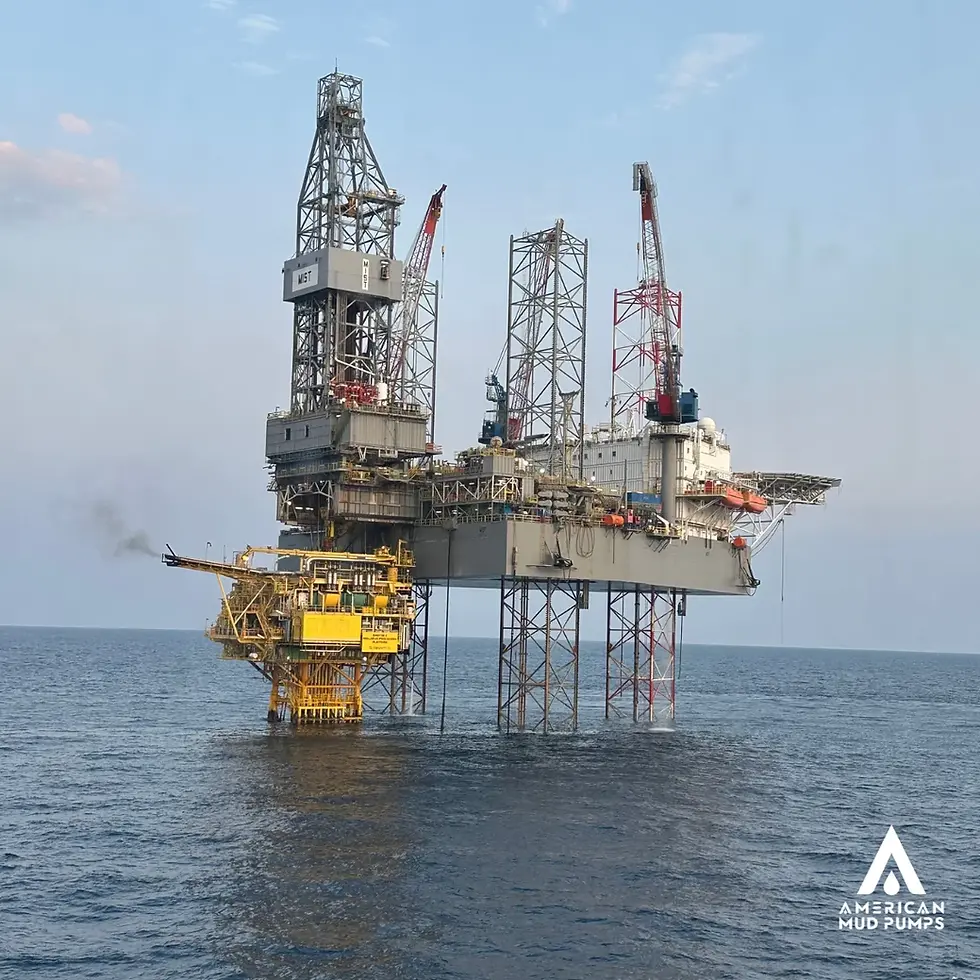What is the upstream drilling process?
- AMP

- May 11, 2023
- 3 min read
Updated: Jun 9, 2023
Several steps must be considered to be successful in drilling oil production wells.
Factors and studies previously carried out by experts that indicate the place and characteristics of the oil field for its realization must be taken into account. This is a description of the steps to normally follow.
Well planning and design: in this step, geological studies and seismic data are carried out, among other data that determine the location and specifications of the well. Reservoir depth, well trajectory, and drilling techniques are considered in this step.
Prepare Site: Once the location of the well is determined, the site is prepared for drilling operations. This involves clearing the area, leveling the ground, and building a drilling rig or drilling site. Access roads, water sources and necessary infrastructure were also established.
Mobilization of the platform: Various types of platform are used depending on the place, it can be terrestrial or maritime. Since, depending on the place, wells can be made on land or sea. This rig is assembled and operated to set up the bore.
Spudding: The drilling process begins with a procedure known as Spudding, which involves drilling a shallow well known as a "drill hole" to a set depth. The purpose of the hole is to provide a stable starting point for subsequent drilling.
Drilling: drill hole ready, beginning main drilling operations. The bit, attached to a drill string, is lowered into the hole. The drill string consists of interconnected sections of drill pipe that transmit the rotational force and drilling mud to the bit. The bit gradually penetrates layers of the earth, cutting through rock formations.
Circulation and Drilling Fluids: Drilling mud or drilling fluid circulates through the drill pipe, exits through the bit, and backs up the hole to the surface, using a mud pump. Drilling mud serves multiple purposes: cooling the bit, lubricating the drill string, transporting rock cuttings to the surface, maintaining pressure, and stabilizing the wellbore. Mud properties are carefully monitored and adjusted as necessary to optimize drilling efficiency and wellbore stability.
Casing: As drilling progresses, sections of steel casing are inserted into the hole and cemented in place, this provides structural integrity and prevents hole collapse. It also isolates different geological formations and helps control the flow of fluids in the well. Typically, several layers of lining are used, each of which is cemented to create a secure barrier.
Formation Evaluation : Periodically, drilling is stopped to perform formation evaluation or well logging. Various tools are deployed downhole to collect data on the geological formations encountered. This information helps identify potential hydrocarbon zones, assess reservoir properties, and determine well productivity.
Reach Target Depth: Drill until the target depth is reached, as specified in the initial plan. This is where the target reservoir or formation is located.
Well Completion: Upon reaching the desired depth, the well is prepared for production. It involves various activities, such as installing production casing, drilling casing to create channels for the flow of oil and gas, and placing production equipment such as piping, pumps, and valves. Well completion is the final stage before the well can begin to produce hydrocarbons.

These steps must be carried out under strict security regulations, which the government of each country dictates. In the Middle East, the United States or Mexico, to name a few places, they have wells both on land and in the sea that must be done following their own regulations to take care of the environment and the safety of personnel.
American Mud Pumps is part of this drilling chain and we are constantly informed of changes and regulations in different countries of the world, to satisfy your needs in every project.





Comments